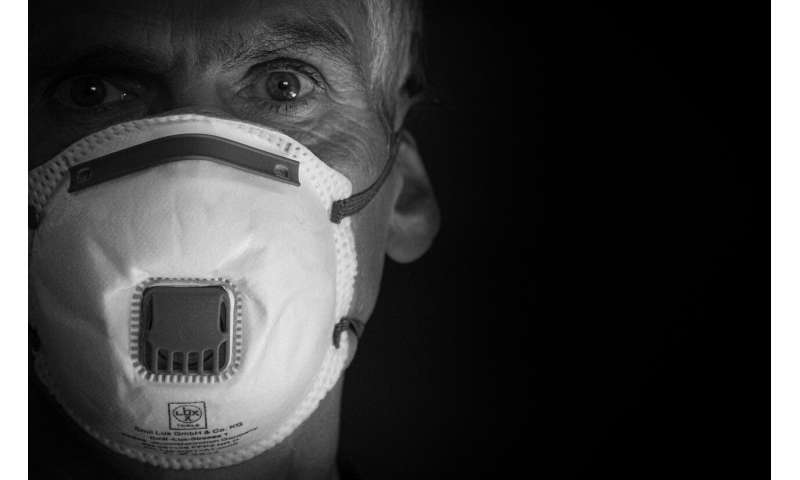Americans sick with COVID disproportionately poor, minorities, uninsured and food insecure

As the first wave of the COVID-19 pandemic was receding in mid-May, some 1.3 million working-age adults reported being home sick with symptoms they attributed to the coronavirus. A new analysis finds that, compared to those still working or those absent with other illnesses or disabilities, the adults home sick with COVID-19 had lower incomes, were more likely to be racial/ethnic minorities, and had less education—national-level evidence of the disparate impact of the COVID-19 pandemic that bolsters other studies based on diagnosed cases and deaths. The study, published September 10 in the Journal of General Internal Medicine, also found that these adults had very high rates of uninsurance and food insecurity that could compound the health harms of the pandemic, findings with relevance to ongoing debates over coronavirus relief legislation in Washington.
The researchers analyzed the Census Bureau’s Household Pulse Survey, a new survey that provides information on the health and financial impact of the COVID-19 pandemic in the U.S. Using data from two weeks of the survey conducted in April and May, the researchers identified working-age adults who reported being out “sick with coronavirus symptoms” (previous research has found that some 83.0% of Americans correctly identify the leading coronavirus symptoms). Compared to those at work the previous week, researchers found that these individuals were more likely to be Black (24.2% vs. 11.5%), Asian (11.7% vs. 5.6%), and Hispanic (26.5% vs. 17.2%). The study authors observed similar patterns when comparing the adults home sick with coronavirus to those not working because of a non-coronavirus illness or disability. Those reporting coronavirus symptoms also had lower incomes and less education, and tended to live in larger households and states with high levels of COVID-19 incidence.
The researchers additionally found that those out sick with coronavirus symptoms had disturbingly high levels of social vulnerability: 29.2% of these individuals were uninsured, compared to 8% among the two comparison groups; and 36.2% reported not being able to obtain enough food, compared to 7.5% of those working and 20.8% of those out of work for another illness or disability.
“We know that Black and Hispanic communities have been the hardest hit by the COVID-19 pandemic, as measured in diagnoses and deaths,” noted study author Dr. Steffie Woolhandler, distinguished professor at City of University Hunter College and a Lecturer at Harvard Medical School. “But our study suggests that the disparate impact is larger yet, because many people recover at home without ever being diagnosed. Our study also reveals remediable social vulnerabilities—lack of health insurance and food insecurity—that could further compound the inequitable health impact of the coronavirus,” she added.
The study builds on previous studies from this research group. An earlier study, also published in the Journal of General Internal Medicine using data that predated the pandemic, found that some 18.2 million adults who were at increased risk of severe COVID-19 because of age or chronic disease were either uninsured or underinsured, and that these individuals were disproportionately people of color and lower income. In another study, published in JAMA: Internal Medicine, the researchers identified a historic rise in work absence for illness of any cause, with a disproportionate impact on immigrants, in April.
Source: Read Full Article
